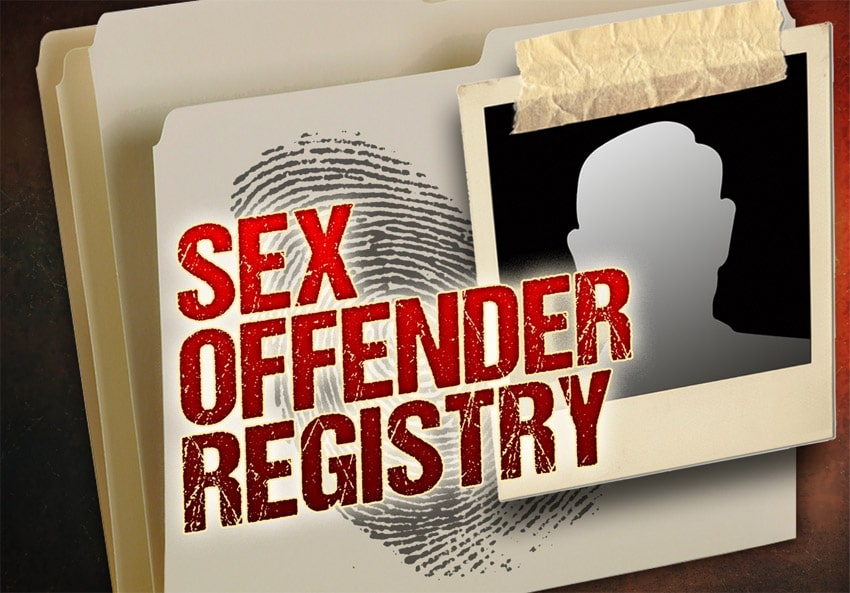How to Get Off Sex Offender Registry in Kansas

Since obtaining a successful result for our client in the district court, Joseph, Hollander & Craft LLC has regularly received numerous calls about Doe v. Thompson, et al. from similarly situated offenders curious about what can be done about the extension of Kansas Offender Registration Act ("KORA") obligations after the passage of Senate Bill 37 (2011). Because our attorneys are focusing on providing our clients the best representation possible, they are simply unable to handle the volume of calls coming into the office. For convenience, we offer the following information for registrants and others curious about the case, its outcome, and next steps:
John Doe sued the Director of the Kansas Bureau of Investigation ("KBI") and the Johnson County Sheriff in a civil matter in Shawnee County District Court. He challenged the application of Senate Bill 37 (2011), which expanded the duration and other offender registration requirements in Kansas to individuals convicted of crimes occurring before July 1, 2011 (the effective date of the law). He requested that the amended KORA be declared to be punitive and, thus, in violation of the Ex Post Facto Clause of the United States Constitution when applied retrospectively. He further requested that he be relieved from registration obligations upon expiration of his original registration term (10 years).
The district court granted John Doe his requested relief. Judge Larry Hendricks declared that increasing John Doe's registration period from 10 years to 25 years and expanding his reporting and notification requirements beyond those originally imposed on him violated the Ex Post Facto Clause of the United States Constitution. He ordered that John Doe's additional 15‐year registration requirement be terminated and that all of John Doe's information be immediately removed from the public registry.
The Director of the KBI and the Johnson County Sheriff appealed this decision to the Kansas Supreme Court.
On April 22, 2016, the Kansas Supreme Court issued a decision affirming the district court. Under this decision (Doe Opinion), John Doe is granted permanent relief from the extension of his KORA obligations.
Also on April 22, 2016, the Kansas Supreme Court issued a decision in State v. Petersen‐Beard (Petersen Beard Opinion) that blocked John Doe's victory on this matter from applying to similarly situated offenders.
Petersen‐Beard addressed an issue related to the one addressed in John Doe's case. Specifically, the case discusses whether offender registration is cruel and unusual punishment in violation of Section 9 of the Kansas Bill of Rights and the Eighth Amendment to the United States Constitution. In both cases, the Kansas Supreme Court had to determine as a preliminary issue whether the KORA is properly categorized as punitive. The Doe decision holds that the KORA is punitive. The Petersen‐Beard decision holds that the KORA is not punitive.
Although the Doe and Petersen‐Beard decisions were issued on the same day, the cases were presented to the Kansas Supreme Court and decided by the Court at different times. During the time in between the presentation of these cases, there was a change of justices serving on the Kansas Supreme Court. Although a majority of justices to hear the Doe case determined that offender registration was punitive, those justices became the minority by the time of the Petersen‐Beard case. Petersen‐Beard became controlling precedent on the issue of whether the KORA imposes punishment. Because Petersen‐Beard holds that the KORA is not punitive, offenders situated similarly to John Doe are blocked from seeking relief from KORA obligations in Kansas state district courts on the same grounds by which John Doe received it.
Offenders who still wish to sue for relief from KORA obligations are not completely without options. The Petersen‐Beard decision relies on federal case law to support its holding. In order to change the outcome, the next logical step may be to pursue the creation of favorable federal precedent. The attorneys at Joseph, Hollander & Craft LLC would be willing to consider initiating a federal civil suit for a qualifying KORA registrant. But it should be noted that this option would not be without hurdles. It would be an uphill battle, as the great majority of federal law on the subject falls on the side of finding offender registration to be non‐punitive. And the costs of the suit would be great‐‐‐likely in excess of $150,000.
The firm will no longer be offering consultations to individuals seeking general advice about their KORA obligations.
However, Joseph, Hollander & Craft LLC's criminal defense attorneys remain ready and willing to represent individuals charged with crimes related to failing to register or failing to provide accurate and complete registration information.
For those interested in the court filings submitted in Doe v. Thompson, et al., in the district court and on appeal, they are provided below.
- Petition for Declaratory Judgment
- Defendants' Joint Answer
- Plaintiff's Motion for Summary Judgment
- Defendants' Joint Motion for Summary Judgment
- Defendants' Joint Memorandum in Support of Summary Judgment
- Plaintiff's Response to Defendants' Motion for Summary Judgment
- Defendants' Joint Response in Opposition to Plaintiff's Motion for Summary Judgment
- Defendants' Joint Motion to Strike
- Defendants' Memorandum in Support of Joint Motion to Strike
- Plaintiff's Response to Defendants' Motion to Strike
- Plaintiff's Reply to Defendants' Response to Plaintiff's Motion for Summary Judgment
- Defendants' Joint Reply in Support of Summary Judgment
- Order Denying Defendants' Motion to Strike
- Doe vs Thompson Appellants' Brief
- John Doe brief to Supreme Court
If you have been charged with a registration-related crime, contact one of our criminal defense attorneys by calling Joseph Hollander & Craft in Wichita 316-262-9393, Topeka 785-234-3272, Lawrence 785-856-0143 or Kansas City 913-948-9490
Skip to content
.
How to Get Off Sex Offender Registry in Kansas
Source: https://josephhollander.com/kansas-sex-offender-registration-laws/
0 Response to "How to Get Off Sex Offender Registry in Kansas"
Post a Comment